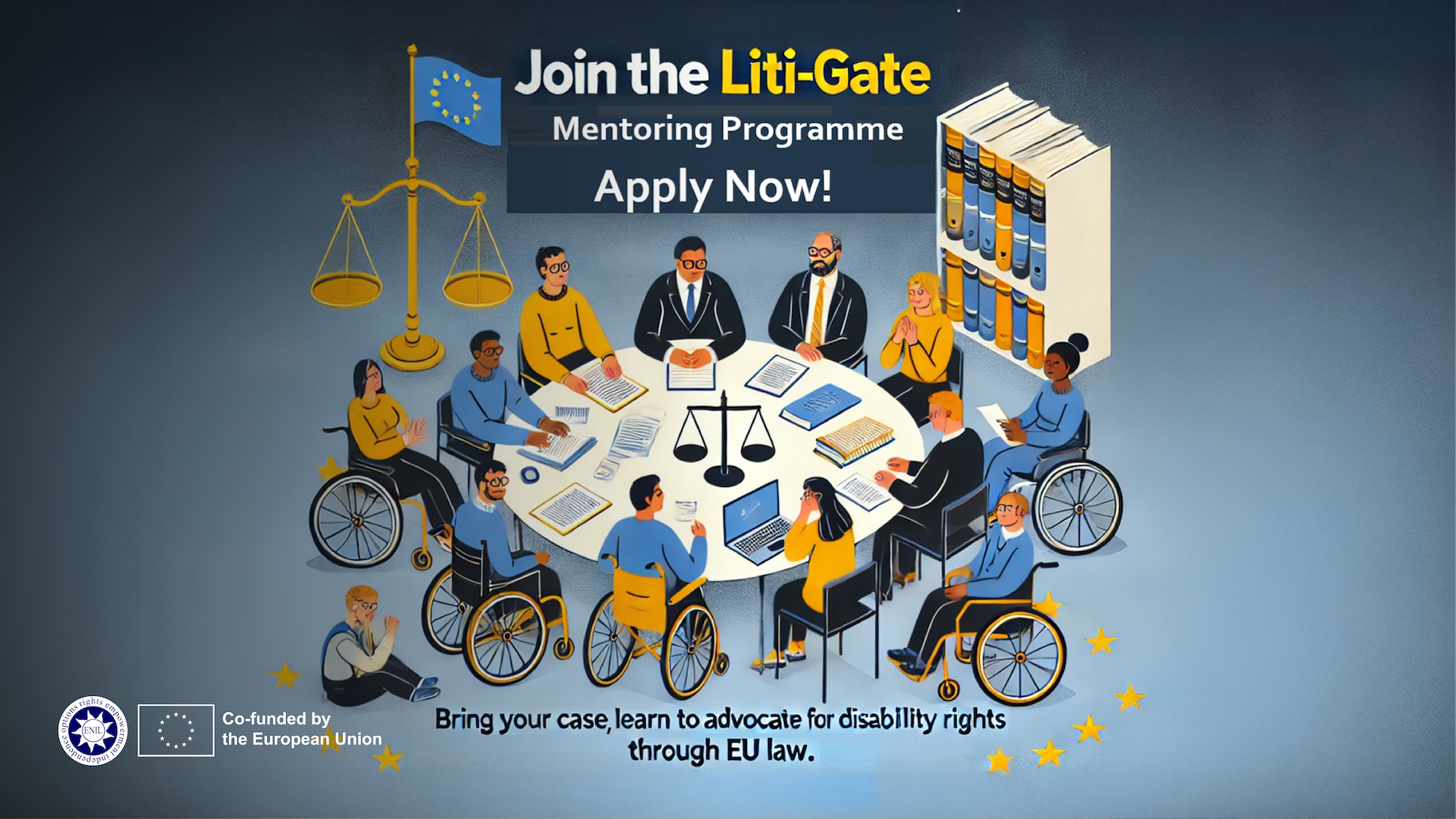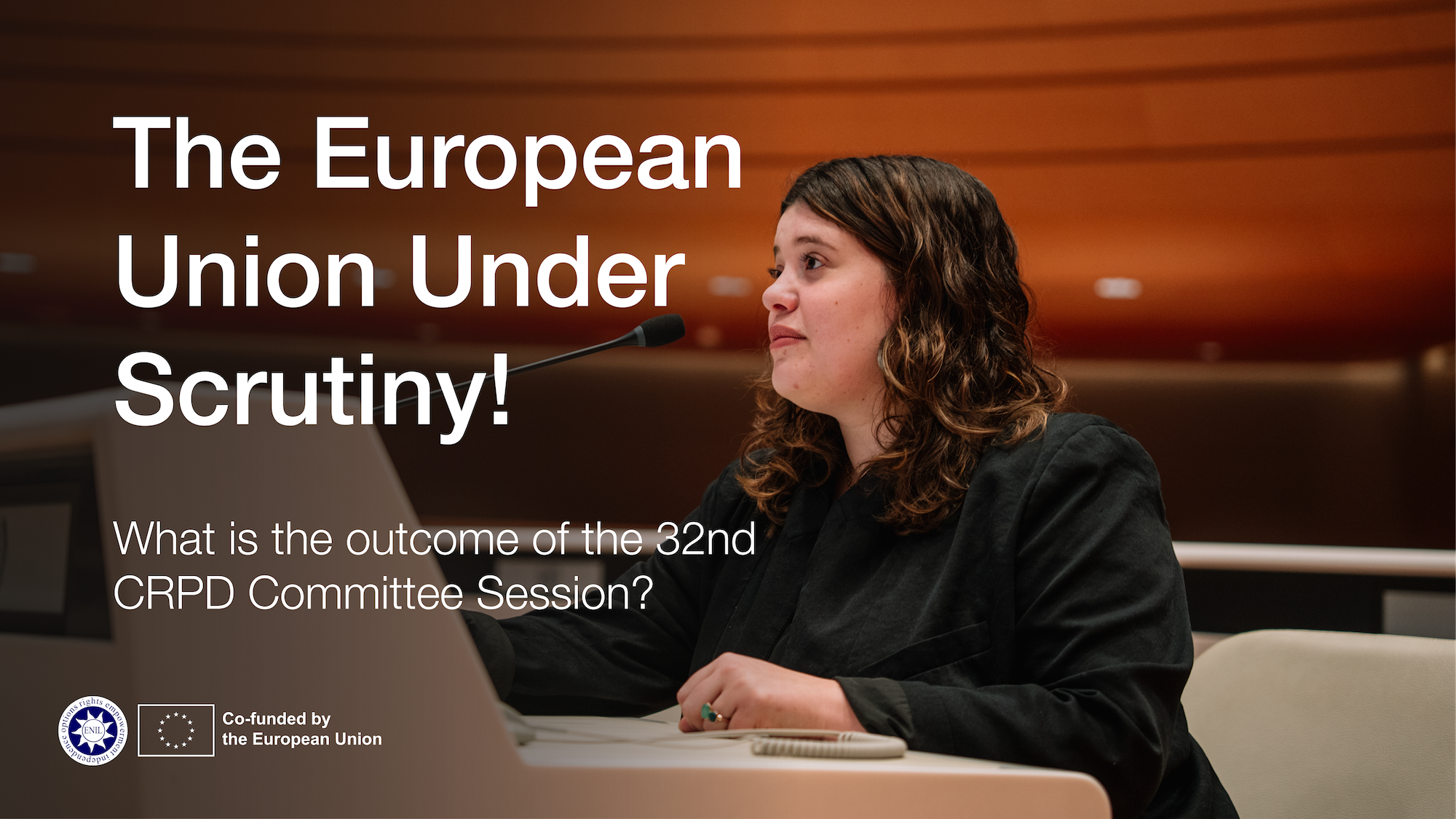On 11-12 April, ENIL was invited to Moscow, Russia, by the Delegation of the European Union to Russia to participate in the international conference “Rights and Well-Being of People with Disabilities in Russia and the EU” (find here the programme), organized as part of the EU-funded project “Public diplomacy. EU and Russia“.
The main topics addressed were deinstitutionalization, independent living, sexual life and employment, but of course discussions touched upon much more than that. Speakers and participants included people from the EU and Russia with various backgrounds and different approaches (from ministry representatives and charitable organizations, to disabled activists and international speakers). They were all gathered to share their expertise on the abovementioned issues.
ENIL was represented by Anna Hallgren (former Board member) and Kamil Goungor (Development officer), while Nadia Hadad (Board member) was also there, representing both the European Disability Forum (EDF) and ENIL. The independent living workshop – where we explained what Independent Living is, how it works, and why it is important, (find here the presentation) – and the speeches given by ENIL representatives were all very well received, as participants’ feedback showed.
It was not a coincidence that ENIL was invited to Moscow to speak about the rights of disabled people in Russia. The country ratified the UN CRPD in 2012, but there are still many things to be done at all levels -from the laws and the accessibility to the attitudes and the mentality, in order to say that Russia is moving in the right direction.
We heard, for example, one speaker – after explaining the horrible situation in the large institutions, with unacceptable conditions inside – suggest instead as a solution “small” institutions (of 50-100 people), with better conditions and facilities. We made it clear that this is not what should be done and that there is no such thing as a “good institution”; instead, individuals should be offered support and housing to live independently. Another speaker, a ministry representative, supported the above suggestion and proudly spoke about the number of “special” initiatives they take, with many connected to employment (perceived as a precondition to independent living). We explained that special services and provisions are not the right approach, and that inclusive mainstream services should be developed.
During the roundtable on careers for people with disabilities, inclusive human resource policies and career coaching, we learned that Russia introduced quotas in the public and private sector to increase employment of disabled people. Those who fail to respect these quotas pay very high fines. As a result, to avoid paying fines, some companies employ fictional disabled people, which they struggle to employ (in reality) due to the lack of qualified staff, absence of legislation on reasonable accommodation or other reasons. This shows that inclusive education and training are crucial to genuinely include disabled people in the employment sector.
The round table on deinstitutionalisation (find here the presentation) focused on new legislation on legal capacity, some assisted living initiatives and different awareness raising activities focused on including disabled people in the community and independent living. What is needed is a deinstitutionalisation strategy that will focus on ensuring that the 170.000 disabled people segregated in Russia’s institutions have an opportunity to live in the community, with the necessary support.
Despite the above, there is a positive side too. This event (and a few others), as well as the existence of some great disabled activists, showed us that the situation for disabled people in Russia is changing. From the Soviet period, where during the Moscow Olympics officials denied the existence of any “invalids” (so the Paralympics were transferred to the Netherlands), today we have people speaking about rights and inclusion. The situation today is better than 40 year ago, and it is inevitable that it will continue improving. While a lot needs to be done, activities in the disability sector (this project runs from 2017, for example), as well as the dialogue with the EU disability movement are positive signs.
ENIL will aim to follow the situation in Russia, when it comes to independent living, and we will support our members and allies with our knowledge and experience. When something is not going in the right direction, we will be ready to react.
*We would like to thank the Delegation of the European Union to Russia for the invitation, and look forward to working together again in the future.


